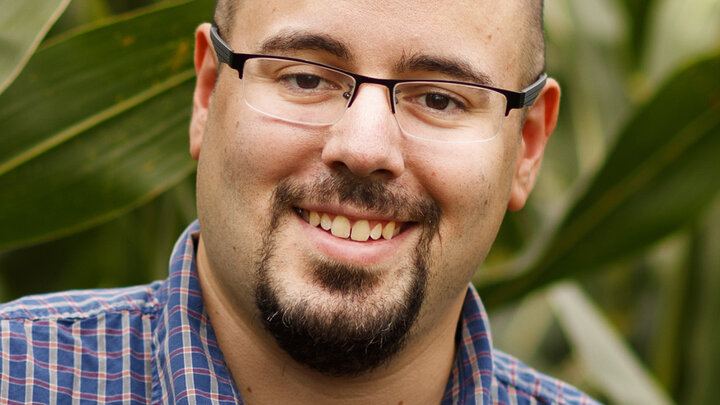The University of Nebraska–Lincoln’s James Schnable, associate professor of agronomy and horticulture, was recently appointed to the Charles O. Gardner Professor of Agronomy endowed professorship. The professorship honors Gardner and his contributions in the field of quantitative genetics and plant breeding of maize.
Nebraska has a fantastic history when it comes to corn genetics. Early pioneers in the field like R.A. Emerson and George Beadle come to mind. The vast majority of people working on corn anywhere in the United States can trace their academic heritage back to Emerson, including Schnable.
The university was the first to hire Emerson, a Nebraska alumnus and corn geneticist who rediscovered the laws of inheritance established by Gregor Mendel. He went on to Cornell University to train Beadle and was influential in cytogeneticist Barbara McClintock’s work, both Nobel Prize winners.
In the 1960s and 1970s, professors like Charles O. Gardner and John H. Lonnquist made Nebraska a leader in quantitative genetics and plant breeding. Gardner was a professor at the university for 39 years and retired in 1989. He was named Regents Professor of Agronomy in 1970 and served as president of the Crop Science Society of America and the American Society of Agronomy. The research accomplishments of Gardner at Nebraska are many and have led to a greater understanding of the quantitative genetics of crops, especially maize and sorghum.
Schnable received a bachelor’s degree in biology from Cornell University and a doctorate in plant biology from the University of California-Berkeley. His arrival on campus in 2014 launched a research program focused on comparative genomics via computer simulation, but he quickly engaged with the university’s high-throughput plant phenotyping — the process of capturing a plant's physical and biochemical properties — and quantitative genetics efforts.
Today, Schnable conducts research on maize and sorghum on the computer, in the greenhouse and field. He works with the Center for Plant Science Innovation, the Quantitative Life Sciences Initiative and the Nebraska Food for Health Center. The U.S. Department of Agriculture, the National Science Foundation, the Department of Energy and the Nebraska Corn Growers support his research. He has also helped found three startups commercializing bioinformatic, quantitative genetic and digital agricultural technologies.
“The Gardner lab was quick to seize upon the new experiments and approaches opened up by the development for cytoplasmic male sterility systems in sorghum, and the development of new isozyme based genetic markers in maize,” Schnable said. “Those techniques enabled new research into mass selection in sorghum and not just developing improved maize but mapping the alleles and genes responsible for that improvement.”
Professor Gardner’s research program and the Schnable Lab are linked, both by the crops worked on — maize and sorghum, together with innovation in methods or genetic insight from either informing the other — and the approaches to new technology.
Supported by the Hoegemeyer Family Fund for Agronomy and the McConnell Fund for Agronomy, the Charles O. Gardner Professor of Agronomy endowed professorship comes with an annual stipend and operating support.
“Charlie was one of the giants in the development of quantitative genetics,” friend and plant breeder colleague Thomas Hoegemeyer said. Hoegemeyer worked for Gardner as an undergraduate student and Gardner was the mentor who gave him his first lessons about quantitative methods and the idea to study plant breeding and genetics.
“Charlie’s work was instrumental in understanding the nature of hybrid vigor in corn, and the development of modern corn breeding practices and systems,” Hoegemeyer said. “His students are still influential in the crop breeding industry and his teaching and research contributed to food production worldwide.”
It is now possible to completely resequence the genome of hundreds of individual corn or sorghum plants, identifying all the places in their genomes that differ. According to Schnable, that progress is due in part to the energy, enthusiasm and hard work of faculty at Nebraska across agronomy, plant pathology, biochemistry, engineering and statistics who work with corn.
“The professorship and the research support that comes with it is critical to continue the progress we’ve made in bringing maize genetics back to the university over the last five years,” Schnable said.
On a scale never possible before, researchers can answer questions about how different genetic variants determine how corn and sorghum plants respond to different environmental stresses.
“Working with engineers and statisticians, we can now use robots and drones to collect data from larger experiments than would ever be possible walking through the field and recording observations with a ruler and a notebook,” Schnable said. “Having access to these technologies right as they come online is helping my research group and the Nebraska corn genetics program as a whole.”




